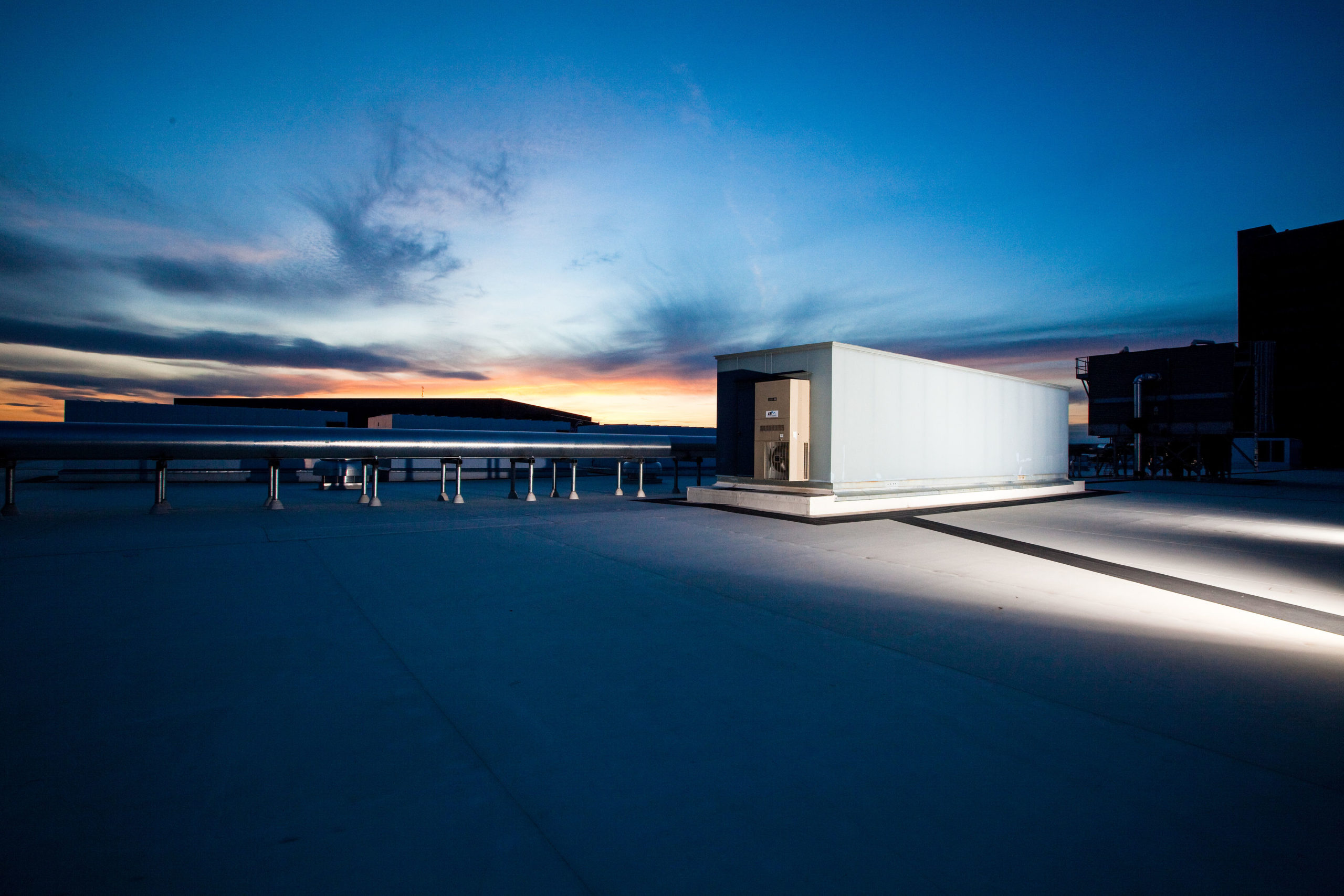What is a Modular Data Center?
A modular data center is a data center that can be deployed just about anywhere and is composed of prefabricated equipment that you can pick and choose to create a unit that meets your specific needs. The data center equipment, or modules, are standardized components—like switchboards, transformers, chillers and pumps, and uninterruptible power sources (UPSs)—that serve a specific purpose and can easily be added or removed from the data center as necessary over time. And the infrastructure that houses these components can range from casings that you can slot into an existing internal space, or outdoor rated enclosures or walk-in style buildings that can weather the elements.
People often confuse modular data centers with containerized data centers. However, containerized data centers are actually a specific subset of modular data centers. They often have fewer capabilities than other modular data centers, but they conform to a standard form factor (like a shipping container) for easy transportation.
While this may solve some data center needs, an enterprise data center shouldn’t have to settle for the inherent constraints of a shipping container. Modular solutions offer both the scalability and the flexibility that an enterprise data center needs.
Advantages of Modular Data Centers
Since modular data centers are tailored to be application-specific and tuned to distinct workflows, they can come in all different forms. That said, there some unique advantages that span all of these different forms:
1. Smaller Physical Footprint
Because modular data centers are pre-designed for a specific purpose, they only take up as much space as the necessary components and housing infrastructure require. A compact footprint allows data center owners to get the most out of their physical location, whether it’s a new, greenfield build or a retrofit of an existing site.
2. Location Flexibility
In addition to being space-efficient, modular data centers also allow for flexibility in the sense that you can install them in any geographical location that an end user might need. Providers can install them as extensions to existing data centers, or even set them up as standalone mounted systems wherever there is available space.
3. Easy to Scale
A modular data center by design allows for elements to be added over time. This gives enterprises the ability to invest capital and operational resources when they are actually needed—not before. This not only improves cash flow, but it gives operators the ability to forecast data center capacity based on real-time IT demand.
How? By using IT rack layouts that are highly configurable and by supporting power and cooling infrastructure. Together, these elements allow IT rack densities to range anywhere from 3 kilowatts (kW) to 30 kW. As a result, builders can deploy single data center modules with anywhere from five to 20 racks, ranging from 50 kW to 200 kW in a single skid. When these data center modules are paired with skids that provide cooling and power, deployments can scale from 1 MW to 10 MW of capacity over time.
Also, while hyperscale and wholesale colocation operators have relied on modular diesel genset backup modules for years, they are just now beginning to scale using modular/skidded power and cooling infrastructure units, such as 2 MW unit substations and UPS units in 1-3 MW deployments.
4. Shorter Build Time and Lower Costs
Deploying a traditional data center relies on the highly efficient coordination of permitting, engineering, site prep, and construction tasks. But one of the major drawbacks of this traditional approach is that these tasks must all still be done sequentially—If there’s a bottleneck at one stage, it pushes the timeline of the other stages back, too.
Modular deployments, though, allow for engineering and construction of the modules to occur in tandem with on-site construction work. Individual modules can be manufactured and tested at the factory, and then they can be delivered while site, civil engineering, and concrete work is completed. Pulling weeks or months out of any deployment. It’s not uncommon for modular units to be on site within 16-18 weeks of project initiation, and for sites to be up and running in less than six months total.
Also, because larger modular data centers are composed of smaller independent blocks (power, cooling, and IT), standard designs for these units can be built. Not only does this reduce engineering time significantly, it also brings costs down, particularly for larger deployments. By developing standard designs based on customized needs, the right provider can establish more efficient engineering and manufacturing processes.
5. Fully Customizable
By design, modular data centers are fully customizable. This is because the modules are self-contained units that can easily be paired together in ways to perform a larger task. Think of the experience of buying a new car: Vehicles come with a standard set of features that people expect, like air conditioning and power locks. But you can select additional features, like cruise control or multi-zone climate, to suit your needs.
Modular data centers are similar in that owners can mix and match different components to tune the system specifically to the IT requirements at hand. For example, upgrading a Tier 2 data center into a Tier 3 design should be a simple matter of selecting the desired options during the pre-sales process.
6. Energy Efficient
Since modular data centers only take up the space and power needed at the time of deployment (and aren’t overbuilt for possible future IT needs), they’re more energy efficient than other data center options. Also, a more optimized physical layout along with hot/cold aisle containment also translates into greater overall energy efficiency. As a result, owners realize greener operations and lower overall operational expense (OPEX)

Figure 1.0 – PUE Calculation
Our modular infrastructure enable enterprises to build or expand their data center footprint.
How to Choose a Modular Data Center Provider
Choosing a provider to help you build your modular data center can seem daunting. However, there are several standard questions you can ask to ensure a provider meets your standards and can successfully achieve your requirements:
- What’s their past experience? You’ll want to understand what types of companies the provider has worked with and how they’ve solved complex IT deployments using their modular platform. This will help you determine how they can meet your specific needs and ensure both cost efficiency and quality of implementation.
- Do they address the needs of your physical environment? If your data center will be deployed in an environment that needs special consideration, like an area prone to seismic activity or require multiple cooling methodologies, you’ll need to understand how your provider leverages their engineering capabilities to offer insightful recommendations. This is a great opportunity to evaluate how real-life operational expertise is a part of their overall package and if it results in easy-to-implement solutions.
- Are they flexible with their vendors and supply chain? It’s important that your data center provider can offer an array of options from different types of hardware vendors so that you get the flexibility you need to meet your computing and cost goals. If you’re locked in to just one or two vendors, you might have a harder time putting together a system that truly meets your needs.
Building a Modular Data Center with IE Mission Critical
Modular data centers provide a cost-effective and scalable way to quickly get flexible computing resources wherever you need them. However, implementing a successful build requires a strong partner that can provide all of the modules, infrastructure, and support necessary to meet your particular needs.
IE Mission Critical provides custom, turnkey solutions that can use any type of components your data center needs—cooling systems, power skids, generator enclosures, e-houses, and more—so that you can easily implement a modular data center specifically tuned to your IT application. Want to learn more about how Mission Critical can help your business build a flexible and scalable modular data center? Visit our website today.


